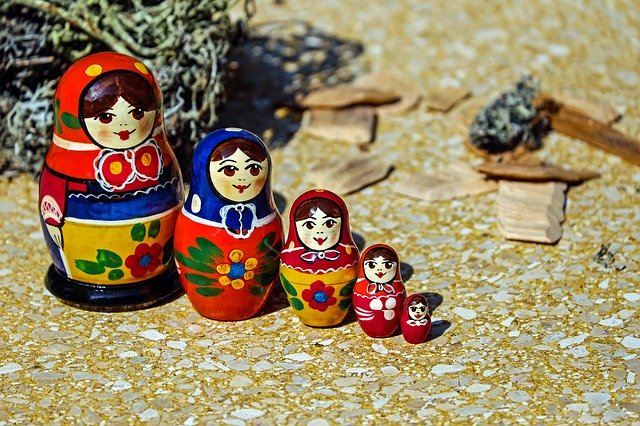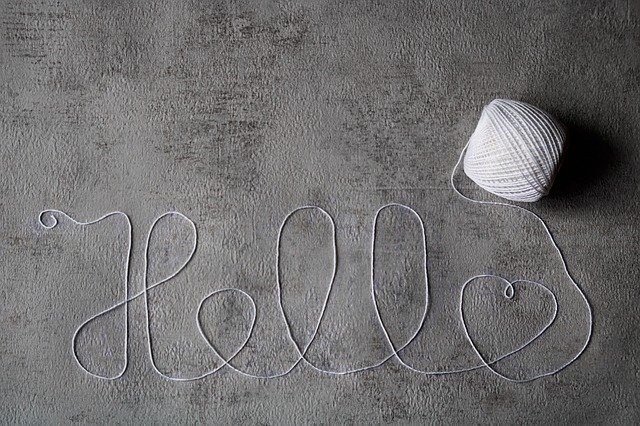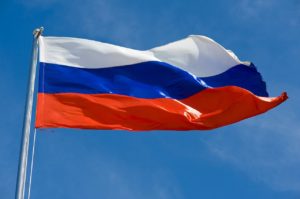And Other Basic Russian Greetings
One of the first things every English speaker learns in Russian is cultural differences. The crucial source of confusion for native English speakers is how to address people in different formal and informal situations. Often, language learners struggle with saying “Hello” and other basic greetings in Russian.
Why does this happen?
All in all, cultures differ in the way speakers treat people with perceived power. Russian culture belongs to the group of cultures that view the “power” as a factor that creates a distance between individuals at different power levels.
Difficulties of Using Russian Greetings
There are many factors that can provide you the “power”- money, knowledge, higher position at a workspace, social status, age, and gender. When you speak to a Russian native possessing one or more of these power attributing characteristics, you view him or her as an author or somebody with higher “power”.
This is a problem that English speakers face in the Russian language. Because of this cultural diversity, it is often not possible to directly translate a Russian greeting (Здарово, Здрасте, Приветик) into English.

And this is the issue many professional translators have to deal with. Hanna Sles, a professional Russian translator, says: “The lack of equivalences in vocabulary typically causes problems. Translations cannot be made on a word-for-word basis because words in Russian may not exist in English. Cultures also do not share the same experience. “
When greeting someone in Russian, it’s important to use the right level of formality for each situation. In this post, you will find short guidelines on how to choose greetings expressions in Russian. With that knowledge you will be able easily to navigate these confusing greeting expressions in the Russian-speaking environment.
10 Ways to Say Hello in Russian
1. An Informal “Hello” in Russian – Привет (Privyet)
The easiest way to say hello in Russian is Привет (privyet). Officially it is considered an informal way of saying hello. Before you start using this greeting, make sure you are on pretty familiar terms with a person.
You can say it to friends, family, and even casual acquaintances. As a rule, when you use this form of greetings, you can address people with the informal you (ты).
2. An Informal “Hello” in Russian – Здрасте (Zdraste)
“Zdraste”is a shortened version of the greetings “Zdravstvujte”. Though the meaning is very close to the formal greeting “Zdravstvujte”- “be healthy”, it is widely used in informal situations.
It is directed to people you know very well such as close friends, family, long-time work colleagues or friends you have known for a very long time.
3. A More Affectionate “Hi” in Russian – Приветик (privyetik)
Russian language is known to have a wide variety of diminutive forms. These forms are usually created with infixes and suffixes like -ик, -ок, -ёк (-ik, -ok, -yok, masculine gender) etc. In this case “privyet” is citified with the help of the suffix –ик (-ik).
This affectionate “privytik” with the diminutive suffix is used in the situations when you greet kids, close relatives, or beloved ones. The suffix “-ik”adds to “Privyet”a tint of loving and caring feeling.
4. A Russified “Hello” – Хай (Khaj)
“Khaj” is simply a transliteration of Hi. It’s more informal and joyous than “Privyet”. Teenagers and close friends widely use this greeting between each other. Young people of the tender age like to use English words in their speech in order to be different from other Russian speakers.
But you intend to speak Russian, it’s better to use Russian regular expressions.
5. Informal hello – Здoрово (ZdorOvo)
It is a popular slang greetings among young people. This is a cheery slang form for saying “Privyet” among boys and men. When you pronounce this greeting, make sure you make a stress on the second syllable {o}. Otherwise, if you place the stress on the first syllable, the word will change the meaning to “great” or “excellent”.
6. Informal way to say hello in Russian Салют (Salyoot)
“Salyoot” comes from French. It is another transliteration way to say hello in Russian. You use it in the similar situations related to “Privyet” (with your friends, family, or colleagues).
All Russian greetings sound difficult and confusing? Don’t get upset or frustrated with the translation of words from English into Russian. There is a big community on Best Russian Translator Facebook page where professional translators provide free support to everyone. If you have any questions, you simply post a question and Russian translators will give you expert answers.
7. Formal way hello – Здравствуйте (Zdravstvuyte)
This is the safest, most neutral, and more formal way to say hello in Russian. You can use it in conversations with a person you are less familiar with. You can safely use it on meeting a person the first time, going to business meetings, etc.
There are also situations when Zdravstvuyte can be used addressing to people that you know very well. That means that you are greeting a group of friends, a group of people you are very familiar with.
8. Military way – Здравия желаю (Zdraviya zhelaju)
This is a military way to greet. It’s a known fact, that military personnel must salute superiors in rank. In Russian military traditions, salutes are performed using hand gestures and greeting with “Zdraviya zhelaju”. In this way, soldiers demonstrate respect.
9. Мое почтение (Moyo pochtenie)
This is an archaic form to say hello in Russian among high society members. Sometimes it is used nowadays to bring some connotation to your speech, more respect. Or it can be used to create an atmosphere of old times.
10. Приветствую Вас (Privetstvuju Vas)
This is another official way to greet people in Russian. You can use it in official ceremonies and meetings.
Other Common Russian Greetings
Here is a shortlist of other basic Russian greetings that will help you communicate in Russian:
# |
English |
Russian |
Transliteration in Russian |
1 |
Good morning! |
Доброе утро! |
Dobroe utro! |
2 |
Good afternoon! |
Добрый день! |
Dobryj den’! |
3 |
Good evening! |
Добрый вечер! |
Dobry vecher! |
4 |
Good night! |
Спокойной ночи! |
Spokoynoy nochi! |
5 |
Glad to see you! |
Раз тебя видеть! |
Rad tebya videt’! |
6 |
How are you? |
Как дела? |
Kak dela? |
7 |
Good bye! |
Пока! |
Poka! |
8 |
Thank you |
Спасибо! |
Spasibo! |
The Best App to Learn “Hello” in Russian
There are a number of different ways to learn Russian. The best option is to use a combination of these ideas and resources. You need to enjoy your lessons, but they also have to bring you closer to your goal.
If you’re learning Russian on a budget, your best option is to download a reliable app that can guide your overall journey. One that’s based on scientifically-proven methods. And that’s OptiLingo.
You can trust OptiLingo to get you to fluency fast. By presenting you with high-frequency words, you can learn how the locals speak. OptiLingo’s learning resources teach you about Russian culture and society, while you master the language.
Most importantly, OptiLingo gets you speaking the language, not typing. We know that practicing your pronunciation is the only way to complete fluency. Try OptiLingo today to discover why it’s the best way to learn Russian!







